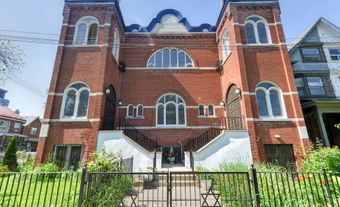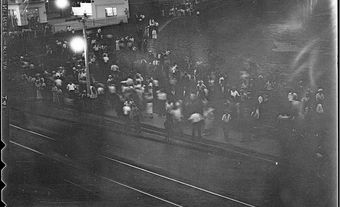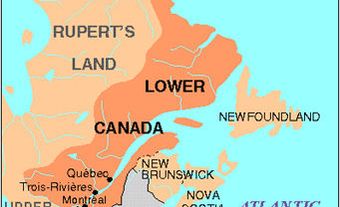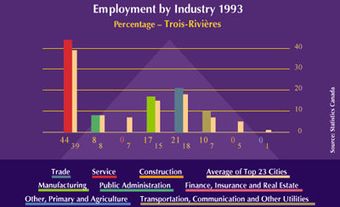Ezekiel (Ezechiel) Hart, politician, entrepreneur, militia officer (born 15 May 1770 in Trois-Rivières, Province of Quebec, died 16 September 1843 in Trois-Rivières, Province of Canada). He holds the distinction of being the second Jew to be elected to a political office in the British Empire (see Imperialism). He was also the first in Canada. Despite his business acumen and good standing in the community, Hart was not permitted to take his seat in Lower Canada’s Legislative Assembly, owing to his Jewish faith. This spurred a public debate on Jewish participation in politics. Ultimately, this concluded with an act granting political rights to Jews in Lower Canada in 1832. (See also Anti-Semitism in Canada.)
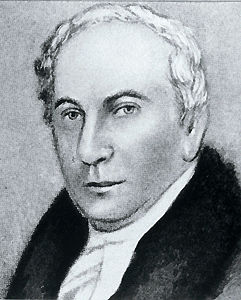
Early Life
Ezekiel Hart was one of Aaron Hart’s eight children. Aaron is generally considered to be the father of Canadian Jewry (see Jewish Canadians). He was one of the first Jews to settle the land that would become Canada. He was a successful merchant and a major landowner. He was also one of the main founders of the Spanish and Portuguese Synagogue of Montreal, the oldest Jewish congregation in Canada.
Ezekiel was born in Trois-Rivières, where his father ran a store and was involved in the lucrative fur trade. Ezekiel was partly educated in the United States, along with his three brothers. In 1792, he got involved in the family business. The following year brought him to New York, where he briefly lived with an Ephraim Hart and his wife, Frances Noah. There, Ezekiel met Noah’s niece Frances Lazarus. In 1794, Frances and Ezekiel married in New York. After a brief sojourn in Albany, Ezekiel returned to Trois-Rivières. In early December 1796, he started several businesses with his brothers Moses and Benjamin. These included a brewery and a bakery as well as facilities to make fertilizers.
In 1800, their father died. Shortly afterward, Ezekiel sold his shares in the businesses he had created with his brothers. Instead, much like his father, he got involved in importing and exporting, ran a general store and purchased land.
Militia Service
Ezekiel Hart joined the Canadian militia in June 1803 and served as a lieutenant in the 8th Battalion of Trois-Rivières’ militia. It is unclear whether he was present at the Battle of Châteauguay, given that he was transferred at around that time to a unit that did not participate in the battle. Hart was promoted to captain in 1816 and became colonel of the 1st Battalion of the Saint-Maurice militia in 1830.
Hart Affair
Ezekiel and his brother Moses both became interested in politics shortly after their father’s death. As major landowners and businessmen, their political interests likely encouraged them to secure local office and take a more active role in the governance of Trois-Rivières.
Ezekiel Hart was one of four candidates to contest a by-election in Trois-Rivières held in 1807. Though he was not favoured by the local political establishment, he nonetheless secured enough votes to win the election on Saturday 11 April 1807. As this was the Sabbath, Hart was disinclined to sign certain documents. Observant Jews like him did not typically work on the Sabbath. For the same reason, he chose to delay swearing his oath as well. To compromise, Hart only signed some papers. He avoided the use of the phrase “in the year of our Lord,” which usually accompanied dates alongside official signatures.
As a result, political opponents objected to his election within a day. Attorney General Jonathan Sewell and Hart’s opponent, Thomas Coffin, argued that Hart should be disqualified because he had not taken the oath. The matter could not be solved in Trois-Rivières. Moreover, because the legislative session in Quebec City was coming to an end at the time of his election, Hart had to wait until January before he could be sworn in. When Hart took the oath, he did so in a modified form that respected his Jewish faith. Normally, a person would place their hand on the Bible and swear an oath “on the true faith of a Christian.” Jews habitually would place their hand on their heads and say “on the true faith of a Jew” instead.
Hart’s right to take his seat in the legislature was contested by members of the Parti canadien. At the time, the party was dominated by Catholic French Canadians. The Parti canadien wished to maintain their majority in the Legislature, and Hart supported the rival English Party. The latter mainly represented the interests of English-speaking settlers who supported strong ties to Great Britain (see Imperialism). Ironically, Hart had been elected by a clear majority of predominantly Catholic, French-speaking voters. Members of the Parti canadien argued that Ezekiel Hart could not take participate in the Legislative Assembly because he did not take the oath upon his election. Members of the Legislative Assembly excluded Hart by means of a resolution. The resolution mentioned Hart’s Jewish faith and further explained that he had taken the oath in a manner that was considered appropriate for people of the Jewish faith at the time. In the subsequent debate, the argument was made that because Jews don’t consider the New Testament to be an integral part of the Bible, his oath was illegitimate. Despite Hart’s protests, he eventually returned home.
In April 1808, the Governor General dissolved the Legislative Assembly of Lower Canada, clearing the way for another election. In the 1808 elections, Ezekiel Hart once again received the majority of votes. This time, he took the oath in “the Christian manner.” He placed his hand on the Bible and declared the true faith of a Christian. The debate as to whether Hart could sit in the assembly resumed. His political opponents argued that since Hart had already professed the Jewish faith, he was ineligible. The Governor General, Sir James Craig, turned the issue over to London, which finally determined that a Jew could not sit in the Assembly.
After this second attempt to take his elected seat, Ezekiel Hart abandoned his efforts and redirected his attention toward his business interests. (See also Anti-Semitism in Canada.)
Death and Legacy
Ezekiel Hart passed away in 1843. He was honoured in a manner befitting a prominent citizen: stores in Trois-Rivières closed for the day, an impressive funeral was held and he was honoured by the local militia unit. It is believed that he had 10 children in his lifetime, although his final will only named seven as heirs.
Though Ezekiel would never again attempt a political career after the Hart Affair, the injustice suffered by their father prompted several of Hart’s children to seek better civil rights for Jews in Lower Canada (and later the Province of Canada). Samuel Becancour Hart carried on his father’s civil rights legacy after he was opposed in his bid to become magistrate of Trois-Rivières in 1830. Louis-Joseph Papineau — who had voted in favour of Ezekiel Hart’s expulsion in 1809 — was compelled to come to the defence of Samuel Hart. He worked to enact the Act to Grant Equal Rights and Privileges to Persons of the Jewish Religion, roughly 25 years before the same rights were extended to Jews elsewhere in the British Empire. Samuel ultimately became a magistrate in 1833. Ezekiel’s younger brother, Benjamin Hart, also fought for equal treatment. He abstained from his appointment as a Justice of the Peace in Montreal until 1837 when he was no longer required to take a Christian oath of office. (See also Anti-Semitism in Canada.)
In 1909, Ezekiel Hart’s remains were moved to the Spanish and Portuguese Synagogue of Montreal’s cemetery on Mount Royal.

 Share on Facebook
Share on Facebook Share on X
Share on X Share by Email
Share by Email Share on Google Classroom
Share on Google Classroom
